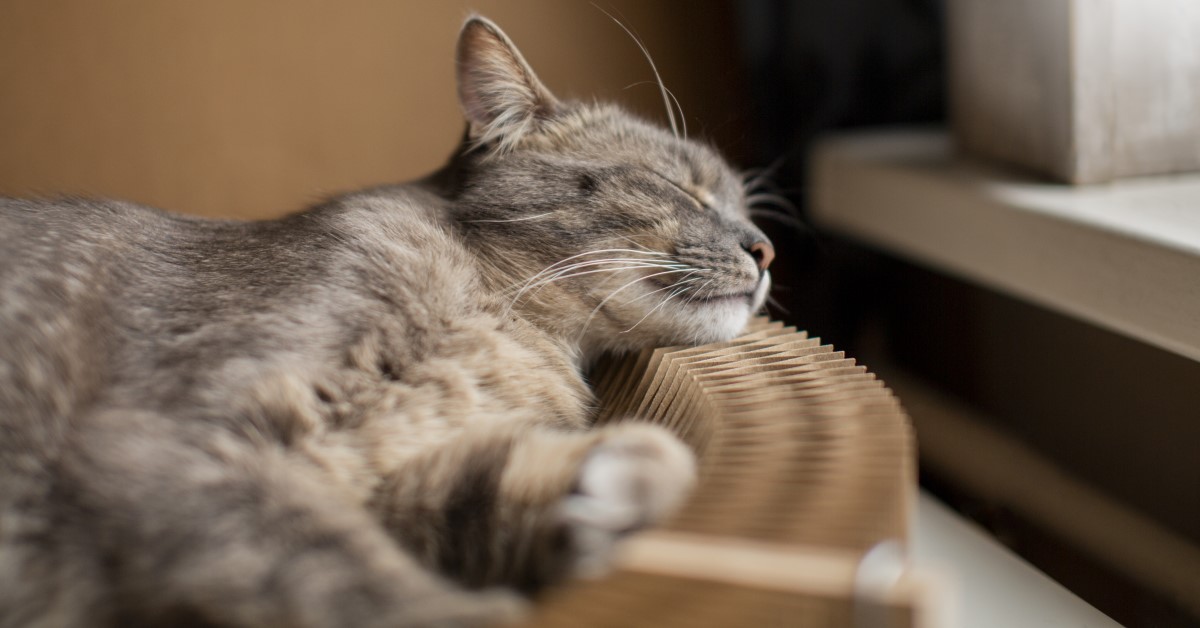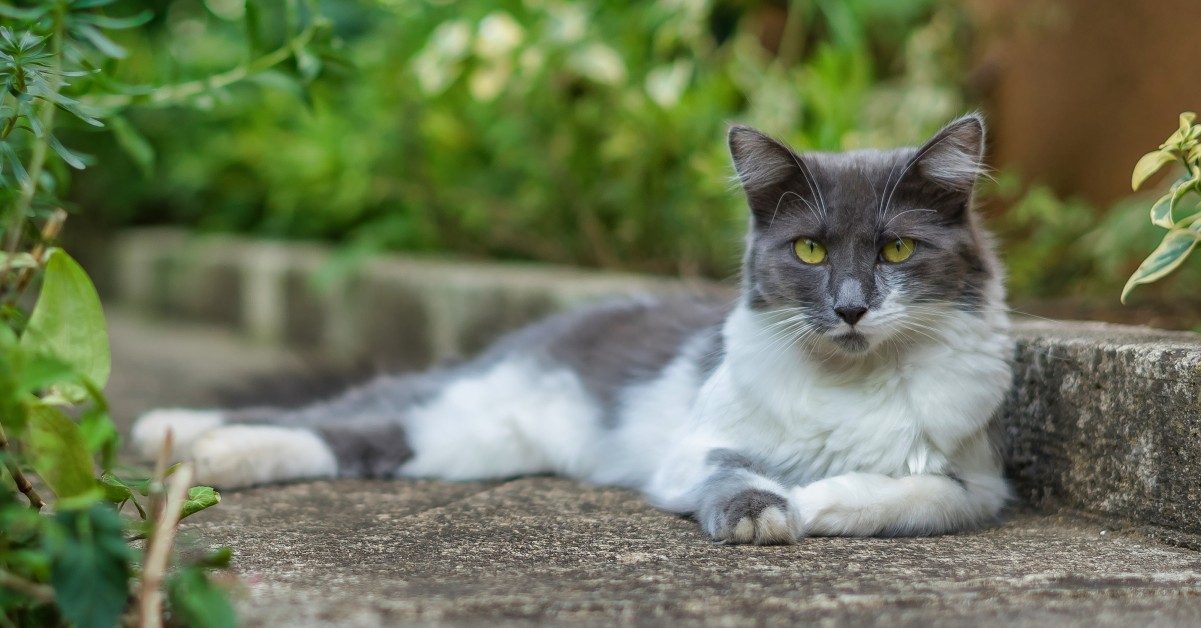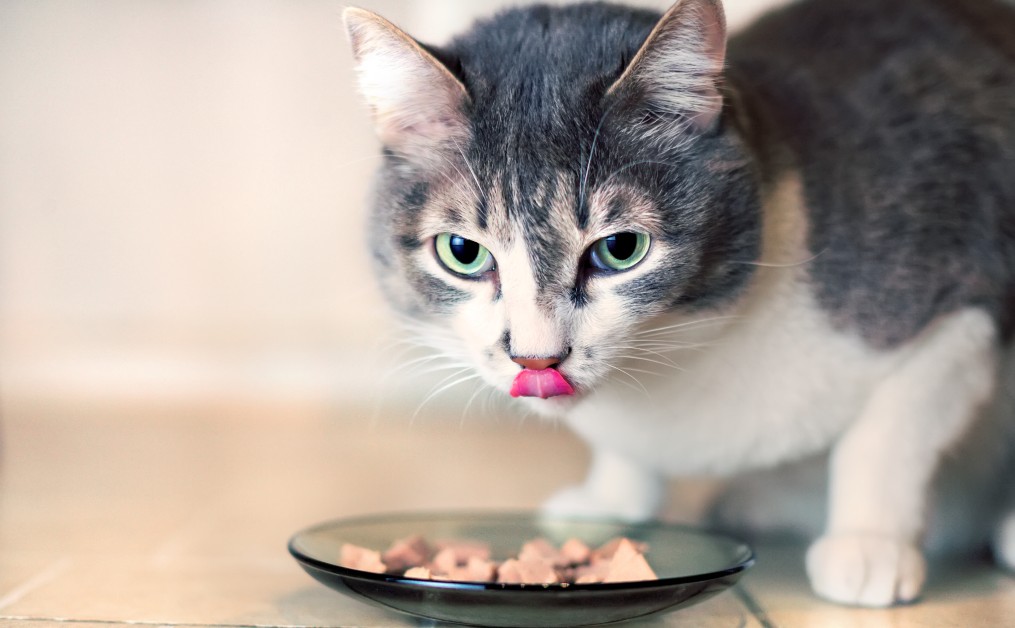Naps & Cats: Feline Sleeping Habits
Cats sleep a lot -- but not necessarily when you'd like them to!

As a cat owner, you probably know by now that cats really enjoy their sleep -- which can add up to quite a lot of time, day and night. You might even wonder whether your cat's sleeping habits are normal if it appears to nap all the time or zoom all over the house in the middle of the night. The more you understand about feline sleep patterns and behaviors, the more easily you can detect abnormal behavior or manage your kitty's late-night sleeplessness. Let's take an eye-opening look at the world of cat sleeping habits.
The (Mostly) Sleepy World of Cats
At any given moment around the clock, you can reasonably expect to find your cat curled up asleep in its bed (or yours), in a chair, on the floor, in a windowsill, or wherever it likes to hang out. This seemingly endless quest for naps is completely normal. Cats typically sleep from 12 to 18 hours out of every 24, with some especially lazy specimens sleeping up to 20 hours a day. However, that sleep is punctuated with frequent periods of wakefulness in which the cat goes about its daily activities. Much of the sleep a cat gets is relatively shallow -- a necessary survival trait in the wild, where predators lurk.
When Nighttime Means Play Time
Cats instinctively conduct most of their hunting activities at dusk and dawn, making them crepuscular instead of nocturnal by nature. In fact, many domestic cats find nighttime an ideal time to sleep, since their humans are generally asleep as well and therefore not making noise or trying to interact with them. However, some cats are extremely active overnight, engaging in fits of the "zoomies" and/or trying to play with you while you're (attempting!) to get some sleep of your own.
This excessive nocturnal behavior can have several possible causes. In many cases, a cat that fails to get enough exercise during the day will have too much pent-up energy to sleep at night. A hungry cat may get up and roam the kitchen in search of food.
Health problems can also interfere with a cat's sleep. Examples of health issues that might disrupt feline sleep include:
- Neurological or psychological disorders - Both dementia and anxiety can interfere with normal sleep cycles in cats.
- Hyperthyroidism - an overactive thyroid may boost appetite, making the affected cat too hungry to sleep.
- Feline immunodeficiency virus - FIV can disrupt feline sleep patterns through its impairment of immune system function.
- Acute or chronic pain - Just as you can't sleep well when you're hurting, acute or chronic pain can make sleep difficult or impossible for your cat.
Can Cats Get Too Much Sleep?
Even though it's normal for cats to spend most of their time napping, they can also get more sleep than is normal for them. If your cat seems to be sleeping more than usual, it may just be overtired from the day's activities or responding to age-related changes. Sometimes, however, excessive sleep can point to an underlying health condition such as:
- Hypothyroidism - While an overactive thyroid can keep a cat awake, an underactive one can cause its energy levels to drop, compelling it to sleep.
- Hearing loss - Cats often spring into wakefulness when they hear a sound. By contrast, a deaf cat won't receive this aural cue, so it will keep on sleeping.
- Kidney disease - Excessive sleep and nighttime vocalization are both associated with this ailment.
While some extra sleep certainly won't harm your cat, an underlying condition that affects its sleep patterns might. If you have any concerns about a change in your cat's sleep habits, contact your veterinarian to schedule a checkup. Symptoms such as weight or personality changes, lethargy, vomiting, diarrhea, and loss of interest in favorite activities should serve as your cue to seek immediate assistance.
Supporting Healthy Sleep in Your Cat
You have more control over your cat's sleep habits than you might think. For instance, if your cat has too much energy at night, you can tire it out during the day by playing with it more frequently, letting it run around in the yard, and giving it "puzzle" toys such as Kong to engage its mind.
There are also certain things you shouldn't do in response to a cat with nighttime insomnia. For instance, you should never reward your cat's nocturnal zoomies with any kind of attention, either positive or negative. Resist the natural temptation to play with your cat in the middle of the night to calm it down. Instead, make a comfortable bed for your cat in another part of the house and keep your bedroom door closed overnight.
Veterinary Guidance and Treatment for Sleep Issues
Your veterinarian can help you manage your feline sleep challenges. An examination can reveal kidney, thyroid, psychological, neurological, or pain problems that might be causing your cat to get too much or too little sleep. Prompt veterinary treatment to manage these disorders and their symptoms could restore your cat's normal sleep patterns. A cat suffering from nighttime anxiety might even benefit from medications or herbal supplements such as valerian.
Don't let your cat's sleep habits keep you tossing and turning at night. Schedule routine exams, get any health challenges treated, and your and your cat can both sleep more soundly!
Ready to start saving money on pet wellness care?
Then take a look at Mint Wellness, the pet wellness plan that provides fast reimbursement on routine pet care. Save on vaccinations, wellness exams, preventatives, dental, and more!
Learn More


